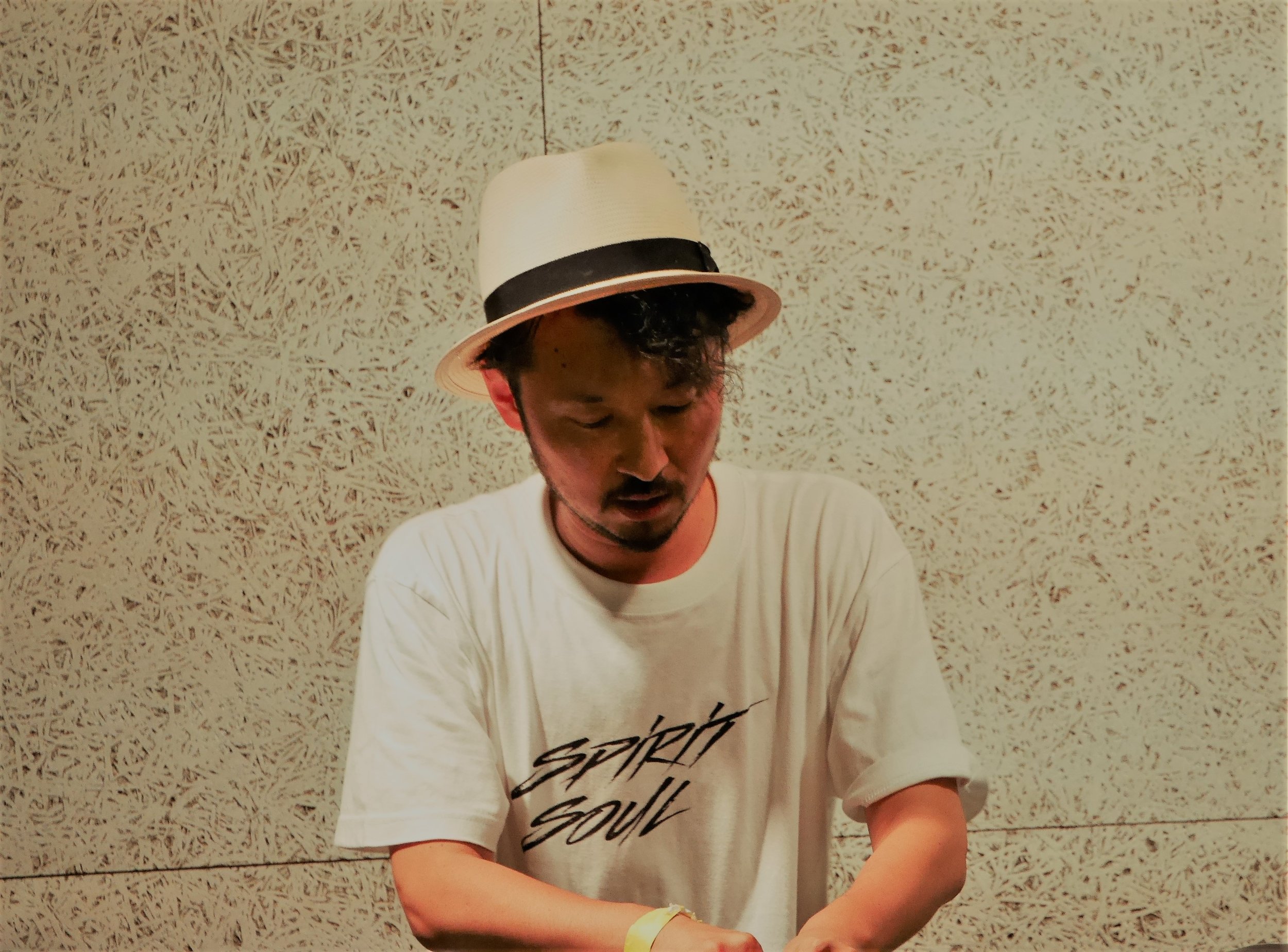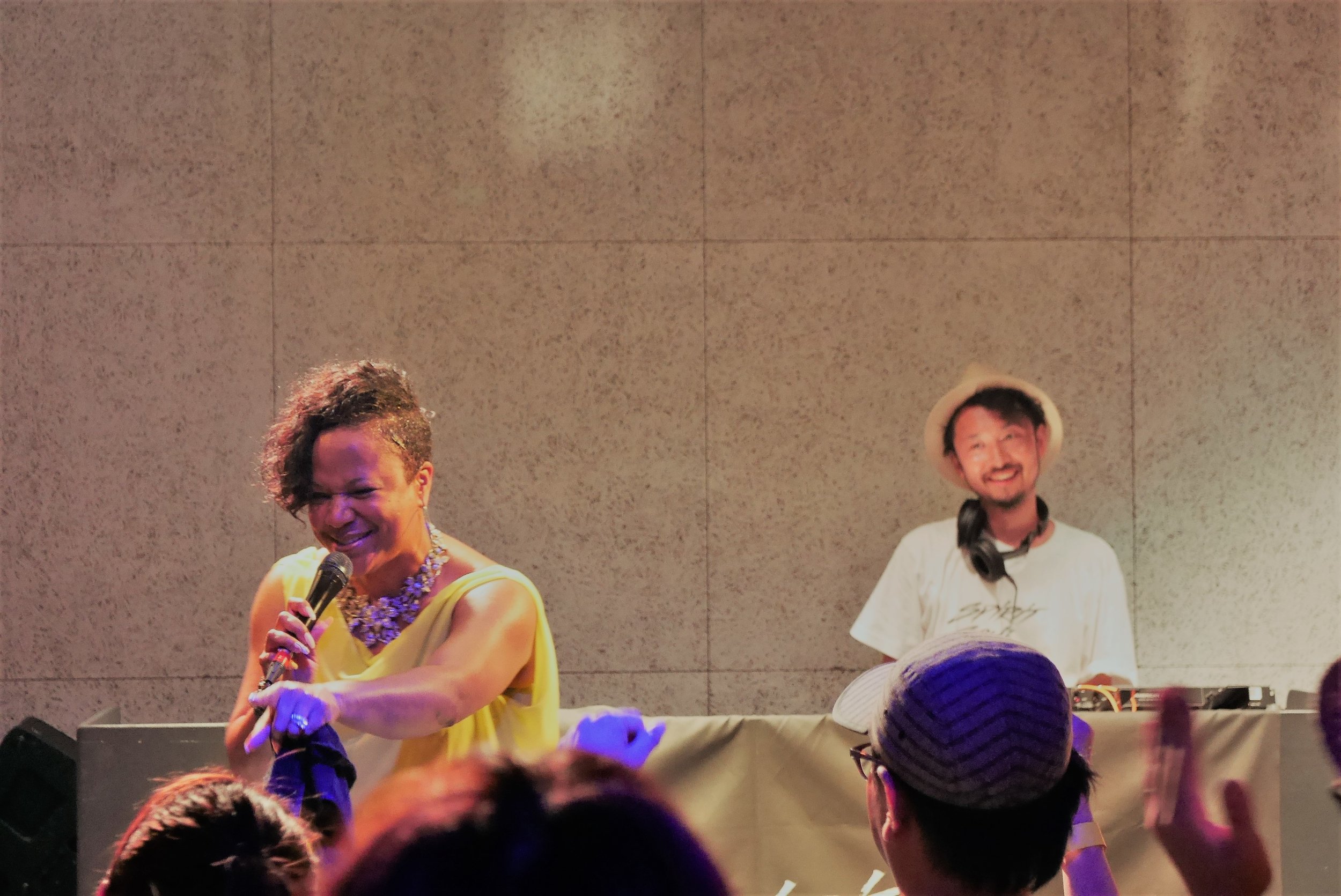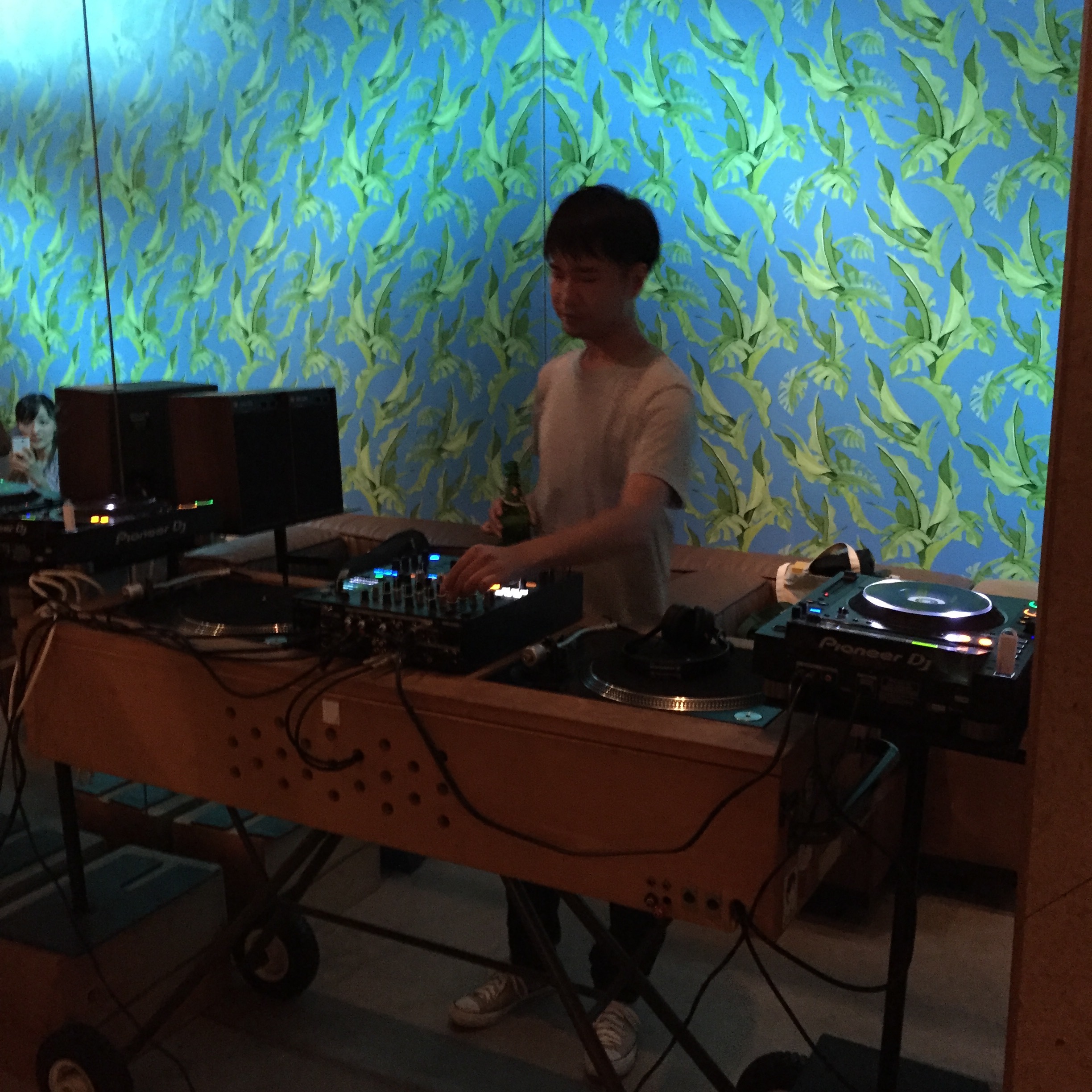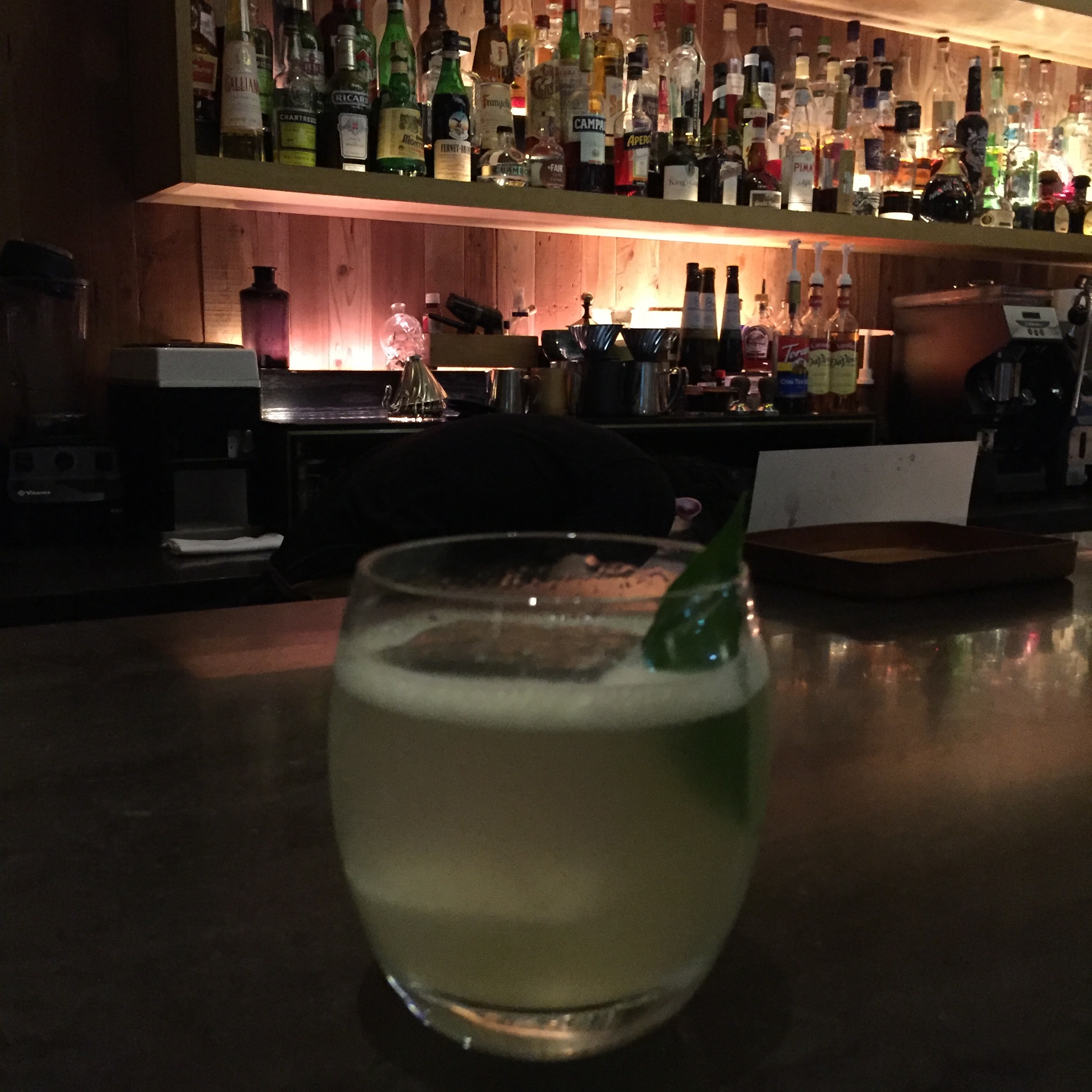Interview with Namy
Yutaka Takanami AKA Namy is an internationally successful producer and DJ who specializes in soulful house music. Originally from Niigata, he currently resides in Tokyo where he still performs, while also managing a media company called Play Today Inc., which not only has divisions for media, events and weddings, but also a record label Play Records to which rising star AmPm (Best Part of Us, I Don’t Wanna Talk) belongs. He has his own soulful house music label Spirit Soul as well.
Namy graciously sat down with Royce Leong of Tokyo ON to discuss his origins, his music and his business ventures.
Tokyo ON: You were born and raised in Niigata. When and why did you come to Tokyo?
N: I came to Tokyo to study at university. I wasn't particularly doing music, I just came to study and wanted to meet people. I was born in the countryside of Niigata, where there really is nothing except nature.
TO: And rice fields?
N: (laughs) Rice fields, mountains, rivers and the sea. So I came to Tokyo to study at university and I met all kinds of people on campus in the plaza where lots of people, musicians, bands gathered, and I started conversations with them, and made circles.* I didn't come to university for a specific purpose, I wanted to meet different types of people and learn new things. And in Tokyo, I wanted to go to lots of places like Harajuku which were full of activity at the time. That's how I started.
*A "circle" in Japan is a casual group formed for a specific activity, mainly in university. This is in contrast to "clubs," which generally have tryouts and are for competitive purposes.
TO: So when you graduated, did you take a job?
N: I first worked for Recruit (a major Japanese human resources company). I was a salesman.
TO: That sounds really normal.
N: It was, absolutely. I was handling sales accounts for human resources.
TO: That's a tough gig
N: It was tough. But after the first year of work, after work during the day I'd go to the club every night, and I'd go to work again the next morning. I'd go to meet clients directly, sleep a little in the morning, work, sleep in manga cafes.
TO: How much did you sleep?
N: I hardly slept at all, when I was young, when I was 22. It was fun, I had the energy.
TO: Can you do that now?
N: No, I have to sleep nowadays, about midnight, I get sleepy. If I'm overseas I can stay up until the morning, in Japan, if you have the adrenaline going its fine, but otherwise I get sleepy. Even though people ask me to stay out.
So I worked during the day, and at night I met DJs at the clubs for the first time and I was like "wow." I went to all sorts of clubs, jazz, R&B, hip hop, and then house music and techno, I listened to all types of music. And at the time I bought lots of records. I'd use the money from the first job I had to buy vinyls. I got loans, and put it on my credit card every month to buy lots of records. I'd ask the DJs what the songs were, because Shazam didn't exist back then, and then I'd go and buy it. I did that every day.
What I liked on those records were the live instruments and the beats of house music, as well as the vocals, gospel singers, I really liked that, so I often went to Yellow (a popular club at the time). Then I had the opportunity to meet singers/vocalists in the clubs and I left, I started going to live houses*.
*A "live house" is basically any venue in Japan where live music of any genre is played
TO: Do you enjoy living in Tokyo?
N: In the old days it was fun, when I was about 22, I really enjoyed it, but now...more than Tokyo I find Niigata to be fun. The exact opposite. Rather than new things, I'm interested in nature and thinking about how I can combine that with music, how to combine the greatness of nature and music, and by connecting them maybe create something new - it's something I can kind of see now. So while I'm in Niigata, I'm looking at using the land and seeing what we can create, what we can unearth, and depending on what we find maybe that could be something itself or we can put it with music to propose something. That's something you probably can't do in Tokyo.
I don't dislike Tokyo, it's just that compared to when I was young there aren't as many things to excite me anymore. But the people are interesting, the people.
TO: Are there any parts of Tokyo you like?
N: Oh yes there are - what I like is meeting people with strong ideas and passions, people come here from overseas, all over Japan, in terms of numbers, Tokyo is the greatest, by far.
There's a limit on the number of people I can meet directly, but within that, to meet these kinds of people is a great thing. But thinking about spaces and land, I think it could be interesting to meet these people in a different place. Everything is expensive here! The land is limited. Whereas in the country where there's lots of space and people have left, I really think it's more interesting now to come up with ways to meet out there.
For example Rock in Okinawa, doing an event on an island, linking people in that area...makers, that is music makers and craft makers, getting together to promote people with a creative mindset and spirit.
Another example is Fukuoka, which is famous for mentaiko*. Mentaiko manufacturers can design cute mentaiko goods, and stick it onto guitars of musicians as a way of promotion (for a small monthly fee), and musicians who understand the concept make music accordingly. That's just one idea, by searching for these possibilities you see that many of these factories that make these things are in the countryside, if you can connect them effectively I'm sure something interesting will come of it.
*mentaiko - Salted pollock roe
As you know, Japan is a country of monozukuri*, people are very particular about the manufacturing process. For music as well, Japanese people do it very respectfully and with care to make really nice music and melodies so that it all sounds professional and high quality. Those are the great parts of Japan, and putting these together, in my mind, will generate something of great value.
*monozukuri – making things, the art of manufacturing
To find people, it's going to be Tokyo. But where you do it, should be local. And then find content and ways to attract people from all over the world.
TO: I guess you’re not big on Tokyo anymore?
N: Well, I think I have come to understand a lot of things here. There are good things, the relationships that I make here in Tokyo, I want to use that to return something to my community, I want musicians to be able to be successful anywhere, not just Tokyo. Especially to vitalize their hometowns, I hope to create a model that will enable that. It would also benefit tourism in those areas. I mean, you could make a song and try to succeed purely in Tokyo with major labels, that is one way of going about it, but you should also be able to do it on a smaller scale and still make a living - we've got to find ways to make that possible. See with a major label, they have a lot of staff, and the amount that the musicians get in the end is going to be small, by proportion. In the old days that was fine, but in the world of J-pop it’s getting worse and worse, the population is declining and people overseas don't listen to J-pop right? And even if you have fans overseas you can't get them to come to Japan for concerts, to buy media and goods. So what I'm thinking is to take out the costs of labour of the major labels, and give back more to the musicians, and to do that in Tokyo is risky. That's something I've always been thinking.
<Namy as artist>
TO: You’re best known as a soulful house DJ. What got you into this kind of music?
N: Firstly through disco, then I listened to R&B, hip hop. Then from digging through records, I went from disco to house, which is a very natural progression. I would still take elements from R&B, hip hop, jazz - house is such a wide genre.
TO: That's what I like about soulful house, it includes all those elements of funk, soul, jazz, it's very emotional.
N: I agree.
TO: Did you formally study music? How did you get into production from there?
N: No, my brothers, I have a few, I'd play them my records and tell them which parts I liked, the kick from this song, this feeling, this kind of piano, each element I'd request. They didn't know how to come up with that themselves, but as DJ I knew what would sound good. You know which are the good parts, this kick and this bass line. I was an amateur, so they'd get frustrated, but I knew that if you could put together a song with these elements it'd work. I'd communicate these things to them, and they'd put it together. So actually, Namy, that comes from my name, but it's actually the name of the project. The composers, lyricists, singers, players, I'd introduce them to one another and take care of them.
TO: And so you're the conductor.
N: Yes! Conductor and concept maker. And finally we'd make the media. So AmPm, is also a project, in fact the track makers for Namy are now the track makers for AmPm. In a way they've graduated, but someday I hope they will return to Namy.
TO: Most of your tracks feature people singing in English. Is there a particular reason for that?
N: When I listen to music, soulful house, anything, when I hear English it's never uncomfortable...with Japanese singing, it's weird but it just doesn't sound cool to me, I can't feel the emotion.
TO: You think there's something lacking with Japanese?
N: I wonder what it is...when you put Japanese vocals to the track, the phrasing, when you try to get it to flow and try to express a message, Japanese isn't bad, but the intonation and phrasing, which are really important, just doesn't fit.
Also, with English, the number of people who will be able to understand the song is obviously a lot higher as the common language of the world. I want more people to listen, to make as many people happy as possible.
TO: You've featured Japanese vocalists like Miwa, Monday Michiru and Azumi Takahashi, but you got them all to sing in English. Do you ever get anyone in Japan turn down a request to sing because of English?
N: Oh yeah, definitely.
TO: You want them to sing, but because you ask for English...
N: No dice. It happens. But at the same time with the pronunciation, from America, I get some complaints. Why not sing in Japanese? Instead of singing with strange pronunciation, soulful house DJs like Mark DiMeo asked me why not have Japanese vocals, people want to hear a country's soul and spirit through their native language. So maybe I don't have to make a rule about only having tracks in English.
I understand that, but I'm not in that space at the moment. If I had a track that would sound good with Japanese singing in the future, I'd love to do a release, but I don't have anything on hand right now.
TO: You’ve worked with some great vocalists in the past such as Stephanie Cooke, Josh Milan and Kathy Brown. Who would you like to work with in the future? If you could book anyone, present or past, who might you choose?
N: Chaka Khan...she might be in her later years now, but she means a lot to me since my youth. Chaka Khan and Jocelyn Brown...also Loleatta Holloway, Gloria Gaynor, Diana Ross…
TO: All the disco classics.
N: You know it.
TO: What inspires you?
N: Nature and family, friends, I grew up in nature, in the rice fields, so helping the local community, helping one another inspires me.
And then from urban areas, the cities, the feelings I get from interacting with people in the urban environment and combining that with the emotions I get from spending time with family - I think that leads to good music. You can't just spend time in nature, or you end up with that kind of spiritual natural music. House music comes from the streets, from interacting with others. To me, the combination of the two is important.
TO: What are your favorite venues to perform in Tokyo?
N: Right now, in Tokyo I prefer to play in smaller venues like BPM in Shibuya. Recently I've started doing regular events there as DJ. Cruising is fun too, like with Jicoo (the floating bar), but that costs money. BPM is free, or at least entry is just one drink, and so anyone can easily go to enjoy listening to music. The DJs are paid properly. It's small scale, but it’s easy for people to connect.
TO: I think it's just the right kind of size
N: Yeah. I get a lot of requests to play at big clubs but these days I turn most of them down to play at bars like BPM instead. This is Tokyo, so why not make the most of it and communicate properly with others in these kinds of interesting environments? Cruising can be fun too, but right now I like playing at small spaces where they have a good sense of style, the acoustics and sound are good too, you can speak in a low volume and be heard while listening to the music.
TO: So you prefer more unique environments, like Silent Sky in Sunshine 60 as opposed to the big venues.
N: Yeah like that, bars and lounges. Well, I just played at Womb (in Shibuya), which is great for meeting foreigners and that's cool too, but I prefer smaller venues where it's more equal for communication and you can walk in and out.
TO: How about international venues?
N: Internationally I like Black Flamingo in Brooklyn, New York. It's kind of like BPM with the wooden interiors but its capacity is around 300 people, and guys like Louie Vega and DJ Spen play there. It's real nice.
<Play Today Inc. and Spirit Soul>
A Play Today event at Trunk Hotel in Shibuya
TO: In 2015 you established Play Today Inc. with Kenta Ochiai, and you handle event management, you have a wedding division and a record label Play Records as well. Tell us your vision for Play Today Inc.
N: As the name suggests, it is to play, today. The vision of Play Today, and it’s my vision too, is not to just listen to good music, but also to create the location, contents, culture for listening to good music. And then fashion as well, interior, all sorts of things on top of music, you require a space for that and we want to be involved in creating that from zero. That means music and of course, people. So overall, it’s to have music bring people together as the base and create something on top of that. From here on, with weddings as well, we want to create wonderful environments that will make people happy and connect people. So we're also looking at restaurants and cafes, and hotels in the future as well.
TO: You want to run a hotel?
N: Not manage it, someone else will do that, but my specialty is music. Music as the base for the hotel, or the type of music that the hotel plays, well, there's lots of ways to approach it. The core concept is to use music to bring people together like house music does.
TO: Some recent examples that come to mind are hotel koe and Trunk Hotel in Shibuya.
N: Yeah those are nice. But what we want to do is slightly different. For example in Niigata or other regional areas we want to do it there, not Tokyo.
Something we're trying is the Yamanoue event in Niigata, where we have set up a bar on top of a mountain in the ski field. We get a piano and keyboardist, and make a huge bar counter that looks like a grand piano, and you can listen to jazz under the stars in this location, with the beautiful nightscape below. There's lots of nice places like this, so that's what we want to do with branding.
Yamanoue event in Cupid Valley Ski Resort, Niigata prefecture
TO: So your main focus is regional?
N: It’s about half half...plus international. We're looking for people abroad as well, so we can have a Play Today in London, or Play Today in New York
TO: How about Play Today in Sydney?
N: Sure, in the future. I hope!
TO: How about Play Records? What's the latest update, or what about your soulful house label Spirit Soul?
N: We've been mostly digital but next year we hope to get physical media out, vinyls and CDs. With AmPm hopefully we'll have CDs next year, we're doing the recording mastering now. As for Spirit Soul, we do want to have vinyls, at the moment we distribute mainly though Traxsource.
TO: Something I've been curious about is how do musicians make money. You can't make money from selling CDs anymore.
N: Yeah you can't. Most musicians these days have day jobs, working as salarymen. Guys like FPM are an exception, and I really respect him for that. But most people in the world, new artists, it’s very difficult. People who have been around a long time might still be okay, but new DJs and artists who have a dream of being a professional musician, unless you're doing something wildly different, you can't make a living. I really want to do something about that.
TO: Music really isn’t enough to make money.
N: No way. Especially in Japan.
TO: Even you Namy, you have a company.
N: Exactly. We have to do something about it. So that's why I'm investing in music as a company. Even if we don't get anything back, don't make any profit, in order for us to bring music to the world we've got to invest. That's what we're doing with AmPm. Spirit Soul is what I do for fun, it’s my roots.
TO: What we need is to create a platform or infrastructure so that people can make a living from music.
N: Absolutely. You need to earn money directly through concerts and sell CDs, sure, but ultimately you have to get more fans. In Japan and overseas, how do you get more fans is the key. Music branding. You need a cameraman, someone for marketing, those kinds of specialists for promotion. Not as a huge company, just a few people, using a team of just five people with each of their own specialties you can accomplish a lot. If you have five really talented people in a team, going with a skeleton crew, you can achieve really good cost/performance. Doesn't have to be Japanese, we're looking overseas too. Of course locally it’s nice that you can be face to face, but as long as you have talent we can make a team - we have our America team for AmPm, a New York team and an LA team. But really small. With a major label you have lots of staff and so you can't make money that way.
TO: Traditionally you have people go to concerts and buy CDs, but international fans can't necessarily do that. How do you generate revenue internationally?
N: Globally you try to get as many listens on streaming media like Spotify. But we have loyal fans on Traxsource from around the world, and the margins are better than what you get from typical J-pop bought on iTunes or Amazon. DJs on Traxsource know the value of the music and so the sales are better.
TO: What about non-professionals as in ordinary fans?
N: Ah yes, normal fans don't use Traxsource so you need them to stream as much as possible or buy on iTunes. At any rate, you have to try increase your users/followers.
Right now our team is focusing hard on AmPm. All it takes is one major success. Then we can do other projects.
<The Future>
TO: What can we expect from you in the future, as artist and as businessman?
N: As artist, with Namy we want to feature more artists, try to do collaborations with up and coming musicians and vocalists, bring up the next generation with soulful house as the base. We're looking for young artists who are really talented but are somewhat obscure at the moment, who haven't made their break yet. Rather than make a great track for myself as Namy, I want to make connections with other artists and get them more exposure. That's the basic premise for me. Especially with Spirit Soul.
As for business, we want as many people to listen to music as possible, so we want to create amazing locations and contents, and not just get people to show up but to experience emotions, to feel relaxed, to get excited. Good use of music allows you to control those kinds of emotions in a space that you can visit. Music is the base, but we want to add something as a business - that's what I think of as my mission.
Currently we are doing the Yamanoue event in Niigata, up in the mountains, but Japan has lots of mountains and places which we can use. Previously we had the Play Today Fes, a combination of local crafts and music, in Tokyo. That's what we will continue to do, but in regional areas, with the local spirit and mindset. We won't do these kinds of music/craft events in Tokyo anymore, because even if we do it year after year it just ends up as another trend here. That's not what we want. What's important isn't the trend, it’s the spirit. We want people to know the spirit, history and music culture of local areas. We want to pick up outstanding local musicians and create something locally for the community.
TO: Thanks for your time and we hope to see you at another event soon.
If you are interested in exploring the music scene in Tokyo, Maction Planet offers customized tours that cater to your personal music tastes.
For more information, visit Maction Planet



![20180316_205824.mp4_snapshot_00.00_[2018.03.17_19.20.00] (2).jpg](https://images.squarespace-cdn.com/content/v1/5a24f4dcb07869dc6771187b/1532378009480-99SDMPRERN4IVMJ9ESFQ/20180316_205824.mp4_snapshot_00.00_%5B2018.03.17_19.20.00%5D+%282%29.jpg)







